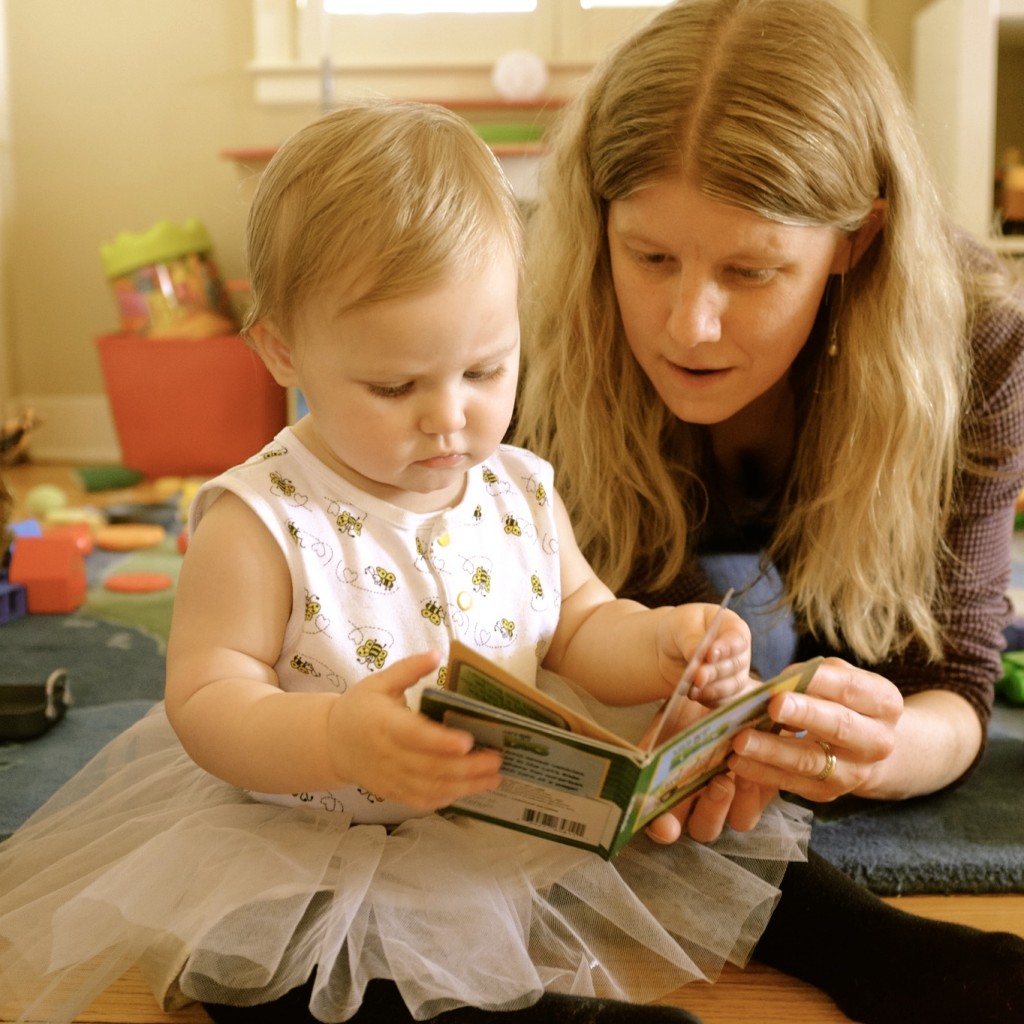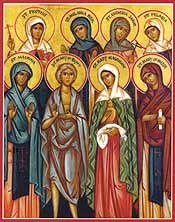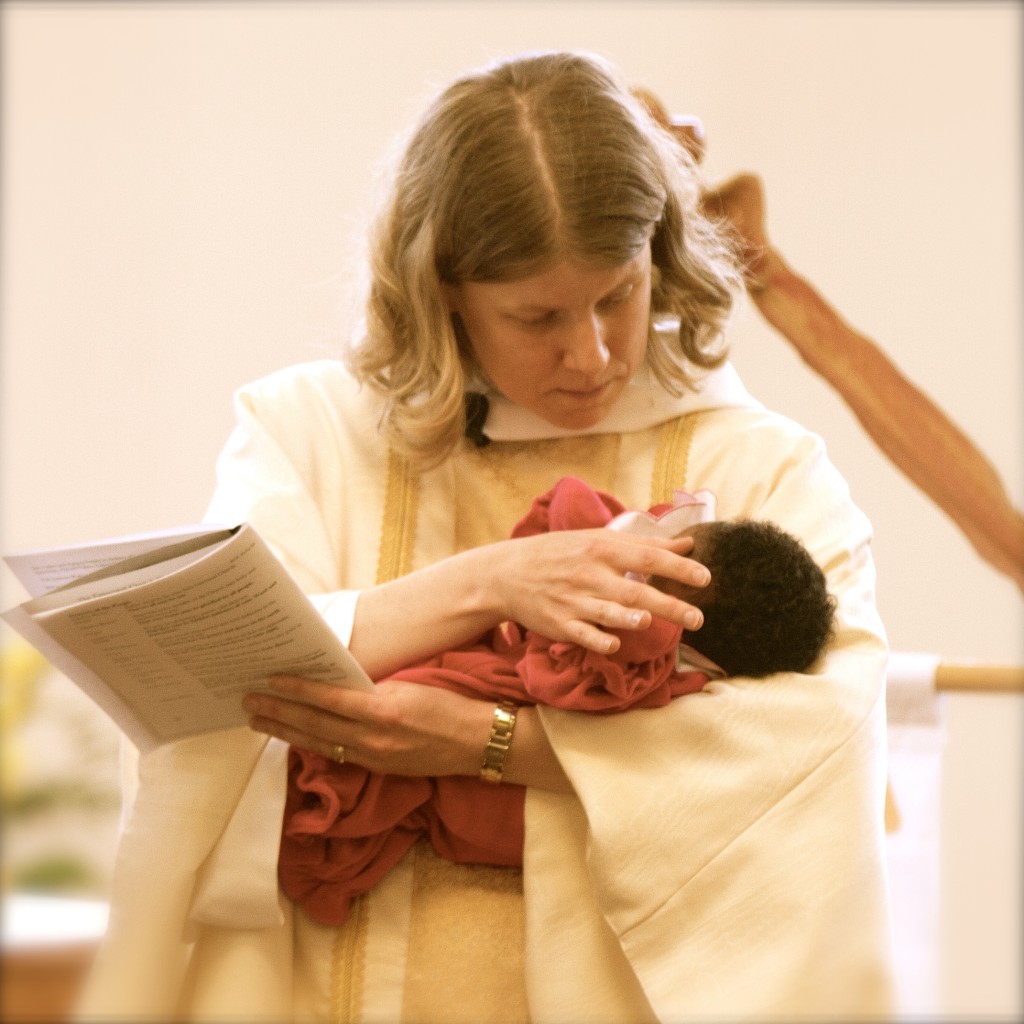It’s a strange thing not to have children, as a young couple. It’s even stranger when you have a house in the suburbs, flexible work schedules, a dog, and you generally like people and children. But Adam and I have decided not to become parents. We discovered we weren’t able to conceive a few years ago and after much thought and prayer, we realized we didn’t feel called to adopt. Those were painful years and we didn’t share what we were going through with many people.
But after a while, that wound healed and a deep sense of peace came over us. Strangely, we both felt God was inviting us to – something? – through our childlessness.
Still, in some ways not being parents means we can’t completely relate to what many of our family, friends, and parishioners’ lives are about. But in other ways, it allows us to be more available to our church communities, to our families, and to whatever else God may call us to one day. Adam can spend 14 days with a youth group traveling to New York and D.C. We can travel to Rome and the Holy Land for my sabbatical, and I can spend four sabbatical weeks in prayer and Benedictine study at the monastery where I’m an oblate (associate). When we schedule dinner with friends and family, it’s easy for us to get in the car and drive to their house so their kids can be close to bed, diapers, and familiar toys.
We also have the most wonderful nephew and niece and I treasure every moment I get to spend with them.

Adam and I have sometimes said to one another that not being parents allows us to be available to the world in ways that we couldn’t be otherwise. But available for what? I’m not quite sure.
Mother’s Day was last week, and many of us at church wished one another a “Happy Mother’s Day!” regardless of whether we were mothers or not. A few of my parishioners said to me something like: “Happy Mother’s Day, Rev. Heidi! Thank you for having us as your children!”
There may be something to that. I don’t want to be a “Mom” to my parishioners, but I do see my congregation as a spiritual community that I guide, lead, and love. I might go as far to say that I see myself as their spiritual mother. It might be nice to be called “Mother Heidi,” although I didn’t feel ready when I first became vicar to claim that as my title.
Many people struggle with calling a priest “Mother” – that seems unfair since male priests are called “Father” almost without question. But we have cultural baggage around mothers, “Mother Superiors,” and female authority. Also, I imagine many clergy are hesitant to use the title because the level of attention or intimacy that might be expected of a “Mother” is less likely to be expected of a “Father.”
In seminary, a classmate called me “Amma” because I gave her some helpful counsel. Centuries ago, the Desert Mothers were called “Amma” and Desert Fathers were called “Abba.” These were ancient Christian men and women who escaped urban society for the deserts of North Africa and the Middle East to pray and live simply, and often offered advice to visitors. (We’re going to visit some of the original sites where they lived on my sabbatical – in Israel and Jordan!)
 When I mentioned to my church board that I was writing about this, a few of them said they would call me “Mother Heidi” if I wanted (my formal title is “Reverend Heidi,” although many call me just “Heidi”). I didn’t expect that response, and I wasn’t sure what to say. A name change is a big deal.
When I mentioned to my church board that I was writing about this, a few of them said they would call me “Mother Heidi” if I wanted (my formal title is “Reverend Heidi,” although many call me just “Heidi”). I didn’t expect that response, and I wasn’t sure what to say. A name change is a big deal.
Whatever my title, I am glad to be a Mother for the Church.




There is a certain discomfort in the title “Mother” for female clergy, but I’m unsure why, exactly. It may be that it simply takes longer to get used to the form of address than to the fact itself. I recall and argument I made back in the ’70’s concerning women’s ordination and the discomfort some felt about it: “we mustn’t confuse esthetics with doctrine”. God never promised us comfort (at least not in this sense). As a priest I was sometimes called “Father”, sometimes “Mr.”, sometimes “Ben” and sometimes “Reverend”. I protested that last, because it’s like addressing a judge as “Honorable Johnson”. But what works is what works and what you and your people find comfortable. Blessings on you and your ministry.
I am constantly surprised by the baggage that accompanies clerical titles. But I am not immune from the baggage myself. Last year, when I accepted my first call as curate of Epiphany, a mother accompanied by three small children asked me what the children should call me? She said she would prefer they not get used to calling adults professionals by their first name. I hesitated for a moment because, while I grew up with the same “southern manners” of addressing adults by their official titles, or simply “Mr. or Mrs.”, I never considered what others should call me, other than simply Ben. I settle on “Priest Ben” which never caught on becuase it is awkward to say. A lot of that struggle over titles was no doubt due to the fact that I was barely 25 when I was ordained, and both my rector and the associate rector are over twice my age. I had trouble, even after ordination, claiming the title reverend because it connoted someone way older and wiser in my mind.
A year into my curacy, everyone now calls me “father”, which I have grown to accept with time. That title was assigned to me by our rector, as a sort of joke, pointed at my anglo-catholic training in seminary, and tendencies to be far more rigid and high church then the other two priests on staff. But more than that, it is an ironic statement, in that I was, until recently, the youngest priest in the entire Episcopal Church (according to CPF), and therefore it is a reminder of the trust and authority placed in my ministry by those whose children and grandchildren are older than me. The title caught on in the parish, and I now understand it to be a title of acceptance and endearment by those who are placing a high degree of trust in someone so young.
I asked our female associate if she wanted to be refereed to as “mother” in an announcement where our names were being placed together. With a grimace she said “absolutely not!” Mother felt too personal, and like a breach of her boundaries between parish and family (her partner and son).
All that is to say, I think clerical titles are deeply personal and can reflect one’s identity in priesthood. Thanks so much for sharing your own reflection on “motherhood” as both a struggle and an emergent identity. Pax et bonum!
I absolutely adore this. Every ounce of it. Thank you for sharing.
Heidi, You are a very special and lovely woman. You can look at the world through a lense of appreciation and acceptance with a large open heart, with a willingness to hear Gods voice, being ready at the gate. Amazing.
Many years through out my life I was introduced as, Sheree, “she has 5 kids!”. I resented that. I am so much more than mother,. Then I lost a child and in reflecting through grief, I wondered what they’d introduce me as now? For a while there were stares and whispers, “she’s the one who’s son died”. Again I resented that and wanted to scream, I’m Sheree, I am just me. Names and descriptions can be hurtful even with the best intentions, they come and and go or remain forever. I’m Granny Lou now and soon Mother of the Bride, those names I can wallow in. My personal favorite description that will never change and one I’ve always known I truly am, is a ‘beloved child of God’.
Thank you for your open heart, Amma.
Part of me is sorry y’all won’t be parents (in the official sense), since I think you’d be great at it, but I also rejoice in your embracing childless-ness for it’s ability to free you to “parent” a wide variety of “children”. Even if you embrace being “Mother Heidi” in your ministry, I’m pretty sure I won’t be able to address you as “Mother” – the title has too many negative connotations for me & I’m old enough to BE your mother! “Amma” I may be able to remember, but it’s probably gonna be “Rev. Heidi” or just plain “Heidi” from me. In any case, thanks much for continuing to parent the folks at St. Benedict.
I need some time to reflect on this sacred revelation. Heidi, as we know the name by the book title, transformed the heart and soul of a bitter and sad old man. Any one having the privilege of knowing you will also have the opportunity to come just a little closer to a better self, perhaps transformed completely.
Lovely thoughts, lovely writing. Thank you for providing a voice for those who are not able to, choose not to, or have a very hard time having children. Part of providing an open-ness to diverse family systems is to allow for and to honor couples who do not have children. You and Adam are a power couple and I’m so glad that you have each other.